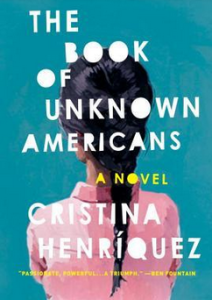For their run up to Printer’s Row Lit Fest in Chicago, the Chicago Tribune has been profiling writers who will be attending to promote their recent work. Cristina Henríquez is a Chicago-area fiction writer and author of the new novel “The Book of Unknown Americans.”
When discussing the subject of immigration, the conversation can quickly become very heated along partisan lines. Henríquez wrote a book to do just the opposite – to the tell the quiet, human side of immigration.
The book deals with a diverse group of Latin American immigrants living in the same apartment building in Delaware. The two central characters, Arturo and Alma Rivera, immigrate from Mexico to enroll Maribel, the couple’s 15-year-old daughter, into a special-needs school. Mayor Toro is a naturalized citizen, born in Panama, who falls for Maribel, complicating the lives of all involved. The Riveras immigration status lapses from legal to illegal and Maribel is on the receiving end of bullying, both of which lend the novel its dramatic arc.
Henríquez, the daughter of a Panamanian father who immigrated to the U.S. in 1971 came to realize that discussions of immigration never extended to stories like her father’s. The author of the 2009 novel “The World in Half” and the 2006 short story collection “Come Together, Fall Apart” felt that some stories never get told, even though they should. Despite the the subject matter Henríquez she is not particularly looking to wade into the identity politics discussions that surround writers like Junot Diaz.
“I go to see Junot, and he’s talking about identity politics,” Henríquez says. “I go to see Sherman Alexie, same thing. It’s what the audience wants them to talk about, and they do. Then I go to see George Saunders, and everybody wants to talk to him about his writing. To me, that’s unfortunate. If those conversations skew differently in the future, I think that’s a good thing.”
To learn more about Henríquez’s work and the autobiographical stories that inspired it, check out the original article at the Chicago Tribune.